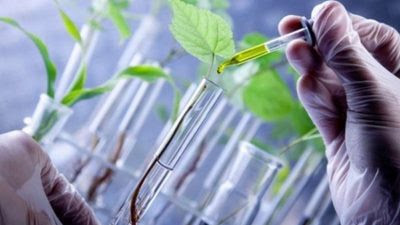Bio-based polyethylene terephthalate (PET) material derived from a natural source, and is a derivative of the woody plant, Eucalyptus tree. An extremely durable material that is easily shaped into any shape desired. Bio-based PET comes in many shapes, forms, and levels of chemical agents which are designed for a variety of PET bottles. PET bottles, due to their large surface area, enable higher volumes of a chemical reaction between the additives and the PET bottle walls. Therefore, PET bottles are commonly chosen by PET manufacturers because of the high level of compatibility that they have with various PET bottles. This material is used to produce various products such as Bottles, Consumer Goods, and Technical.
Growing environmental concerns coupled with the rising health awareness among consumers is fueling the growth of the bio-based polyethylene terephthalate Market. Moreover, increasing focus on sustainable packaging and growing focus of government for promoting the use of packaging material is again driving the growth of the market. Strict rules and regulations for restricting the use of synthetic products is also projected to foster the growth of the market in the near future. Increasing application of Bio-based PET across different applications such as bottles, packaged goods, automotive interiors, construction goods, and electronics is further anticipated to propel the growth of the market.
Europe is projected to gain significant growth over the forecast period and this is attributed to the increasing number of partnership among key players in the bio-based polyethylene terephthalate Market. For instance, in March 2017, Danone and Nestlé Waters launch NaturALL Bottle Alliance to develop 100% bio-based bottles. The goal of this partnership is to accelerate the launch, production, and commercialization of the PETI plastic bottles.
Key Developments:
1 In March 2020, Amcor partnered with Espoma Organic’s to innovate more sustainable packaging and launch a new bio-based polymer package. The polyethylene (PE) the film contains 25% bio-based material, derived – in this case – from sugar cane.
2 In January 2017, Plastic Suppliers, Inc. announced the launch of EarthFirst® UL, an ultra-thin, bio-based sealant web used for flexible packaging applications.
3 In April 2020, S-One Labels & Packaging has launched Sustainable by Design product portfolio for recyclable and bio-based flexible packaging, including films and coatings.
4 In May 2019, Eastman showcases sustainable packaging innovations at LUXE PACK New York. It has highlighted new recycling innovations and Eastman Trēva™ engineering bioplastic.



No comments:
Post a Comment